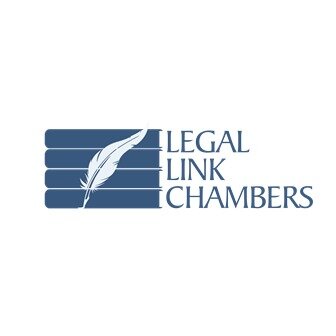Best International Trade Law Lawyers in Rwanda
Share your needs with us, get contacted by law firms.
Free. Takes 2 min.
Or refine your search by selecting a city:
List of the best lawyers in Rwanda
About International Trade Law in Rwanda
International Trade Law in Rwanda encompasses the legal frameworks governing trade activities between Rwanda and other countries. It involves the regulation of imports and exports, trade agreements, customs duties, and disputes resolution. Rwanda is a member of several international and regional trade organizations, such as the World Trade Organization (WTO) and the East African Community (EAC), which influence its trade laws. The country's trade policy aims to promote economic growth, diversify exports, and enhance competitiveness.
Why You May Need a Lawyer
Legal assistance in International Trade Law may be necessary in several situations. Businesses engaged in import and export activities may require legal guidance to navigate complex trade agreements and comply with regulations. Disputes arising from international transactions, such as contract breaches or tariff issues, often necessitate legal intervention. Additionally, understanding local customs laws or responding to a trade sanctions inquiry are instances where expert legal advice can be crucial.
Local Laws Overview
Key aspects of local laws relevant to International Trade Law in Rwanda include import and export regulations, customs duties, and the enforcement of international trade agreements. Rwanda aligns its trade laws with its commitments under international treaties, such as agreements under the WTO and EAC protocols. The Rwanda Revenue Authority is responsible for customs administration, ensuring compliance with taxes and duties. The Ministry of Trade and Industry regulates trade practices and monitors adherence to international trade standards.
Frequently Asked Questions
What is the process for importing goods into Rwanda?
The process involves declaration filing with the Rwanda Revenue Authority, payment of any applicable customs duties, and adherence to import requirements such as standards and certifications.
Are there any specific goods that are restricted or prohibited in Rwanda?
Yes, certain goods may be restricted or prohibited under Rwandan law. It's essential to check the latest regulations on restricted imports through the Rwanda Revenue Authority or Ministry of Trade and Industry.
How are disputes in international trade typically resolved in Rwanda?
Disputes can be resolved through arbitration, mediation, or litigation. The choice of dispute resolution mechanism can depend on the trade agreement terms or parties' preferences.
What are the common trade agreements Rwanda is a party to?
Rwanda is part of several trade agreements, including the EAC, the African Continental Free Trade Area (AfCFTA), and is a member of the WTO.
How does one acquire an export license in Rwanda?
To acquire an export license, businesses must apply to the Rwanda Revenue Authority, providing necessary documentation and adhering to specific sectoral requirements.
Are there any trade incentives for foreign businesses in Rwanda?
Yes, Rwanda offers several trade incentives for foreign businesses, including tax breaks, exemptions, and investment opportunities through special economic zones.
What are the penalties for non-compliance with trade regulations in Rwanda?
Penalties can range from fines and suspension of trading licenses to criminal charges, depending on the severity and nature of the non-compliance.
Is there support for small businesses engaged in international trade?
Rwanda provides various support initiatives for small businesses, including training, grants, and access to financing, particularly for those in export sectors.
How can I ensure my business complies with international trade standards?
Ensuring compliance involves staying informed about current regulations, undergoing certifications where necessary, and seeking legal advice when needed.
What customs documents are required for exporting goods?
Typical documents include a commercial invoice, packing list, export license, and, if applicable, certificates of origin and quality.
Additional Resources
Individuals seeking more information on International Trade Law in Rwanda can consult resources such as the Rwanda Revenue Authority, the Ministry of Trade and Industry, and the Rwanda Development Board. Organizations like the Private Sector Federation also provide support and legal guidance for businesses in trade matters.
Next Steps
If you need legal assistance in International Trade Law, start by assessing your specific legal needs. Consult a qualified trade lawyer or a legal firm specializing in international trade to understand your options. You may also attend trade seminars or workshops for further insights. Ensure that the lawyer or firm you choose is well-versed in both Rwandan and international trade law to effectively guide you through the complexities of trade regulations and compliance.
Lawzana helps you find the best lawyers and law firms in Rwanda through a curated and pre-screened list of qualified legal professionals. Our platform offers rankings and detailed profiles of attorneys and law firms, allowing you to compare based on practice areas, including International Trade Law, experience, and client feedback.
Each profile includes a description of the firm's areas of practice, client reviews, team members and partners, year of establishment, spoken languages, office locations, contact information, social media presence, and any published articles or resources. Most firms on our platform speak English and are experienced in both local and international legal matters.
Get a quote from top-rated law firms in Rwanda — quickly, securely, and without unnecessary hassle.
Disclaimer:
The information provided on this page is for general informational purposes only and does not constitute legal advice. While we strive to ensure the accuracy and relevance of the content, legal information may change over time, and interpretations of the law can vary. You should always consult with a qualified legal professional for advice specific to your situation.
We disclaim all liability for actions taken or not taken based on the content of this page. If you believe any information is incorrect or outdated, please contact us, and we will review and update it where appropriate.
Browse international trade law law firms by city in Rwanda
Refine your search by selecting a city.













